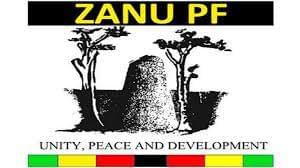Economist Gift Mugano has issued a warning, stating that the ruling Zanu-PF government will face significant challenges in revitalizing Zimbabwe’s economy in the aftermath of disputed elections.
Zimbabwe conducted harmonized elections last month, with several election observer missions raising concerns about irregularities and the failure to meet regional and international electoral standards.
Nelson Chamisa, the leader of the Citizens Coalition for Change, also rejected the presidential election results, where President Emmerson Mnangagwa was declared the winner with 52.6% of the vote compared to Chamisa’s 44%.
Despite Chamisa’s accusations of “blatant and gigantic fraud,” Mnangagwa was inaugurated on September 4, as Chamisa sought intervention from the regional and international community rather than resolving the electoral dispute through the courts.
During a discussion hosted by SOURCE on X (formerly Twitter) titled “Post-election Economic Priorities: Where does the New Government Start?” on Tuesday, Gift Mugano expressed skepticism about the Zanu-PF government’s ability to address the country’s economic challenges in the context of disputed elections.
Mugano remarked, “How is the government going to set priorities for people who did not put them in office? There is disgruntlement, and as long as you have a divided nation, it’s difficult to set priorities.”
He argued that Zimbabwe needed a government that was widely accepted by the people, emphasizing the legitimacy challenge arising from the disputed elections and its profound implications for the country’s economic direction.
Mugano noted that although there has been some economic growth in Zimbabwe since 2018, it has disproportionately benefited the elite.
He cited statistics from the Zimbabwe National Statistics Agency (ZimStat), which indicated that poverty had increased from 29% in 2018 to 40%, with a significant rise in extreme poverty from 29% to 49%. He emphasized that despite this economic growth, it had not translated into meaningful improvements for the majority of the population.
On the other hand, Persistence Gwanyanya, an adviser to the Reserve Bank of Zimbabwe, argued that a major mistake was made in 2009 when Zimbabwe adopted dollarization.
Gwanyanya stated, “The beginning is to understand that we made a serious mistake in demonetizing our own currency. You don’t demonetize your own currency. We are now in the process of correcting that mistake, which is a known international challenge when trying to de-dollarize a fully dollarized economy.”
He acknowledged that Zimbabwe was on a journey toward economic revival, with clear priorities outlined in Vision 2030.
Stability was identified as a critical priority, and Gwanyanya highlighted that achieving and maintaining stability had been a significant challenge for the country due to external pressures and factors beyond its control.
Source Bulawayo24










